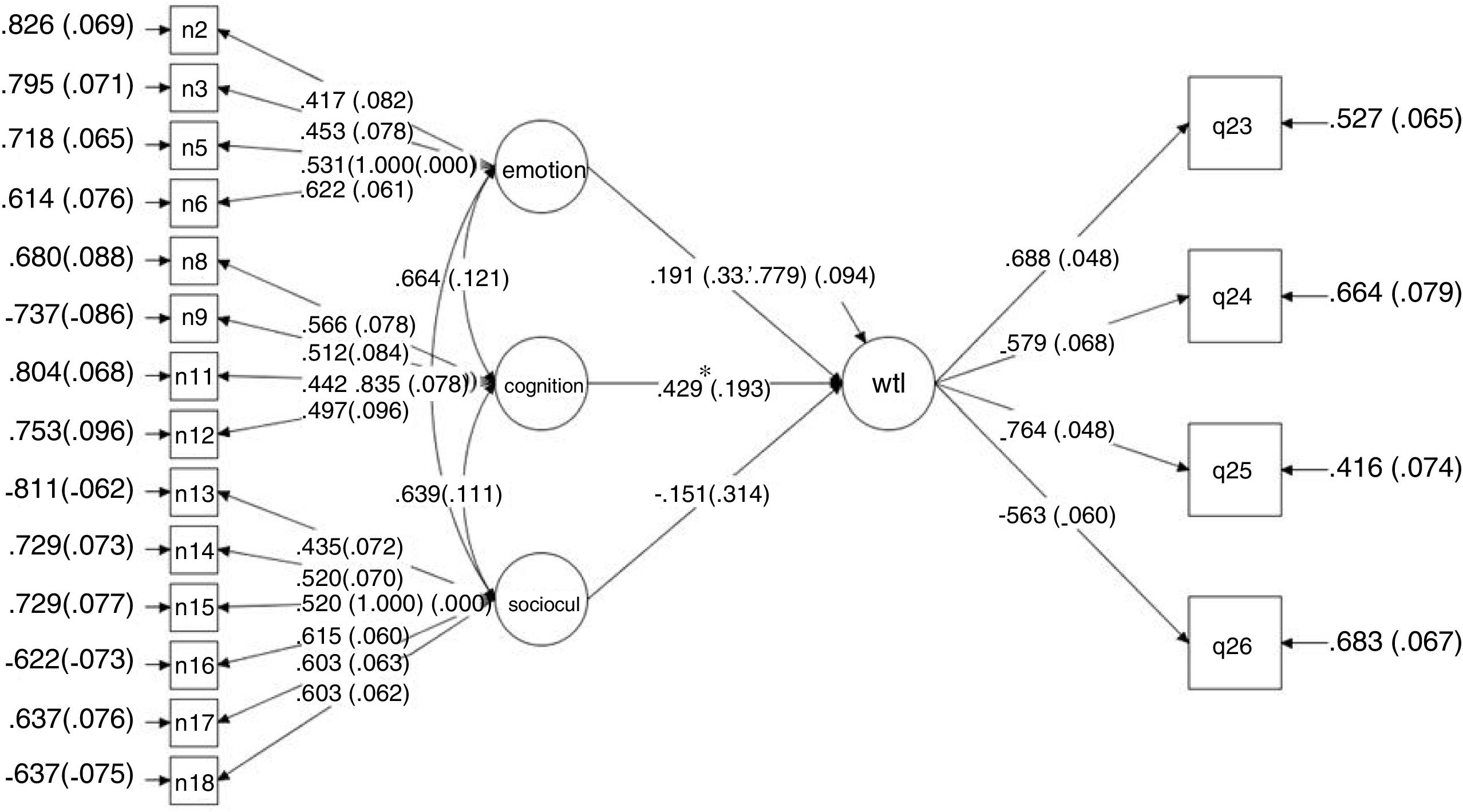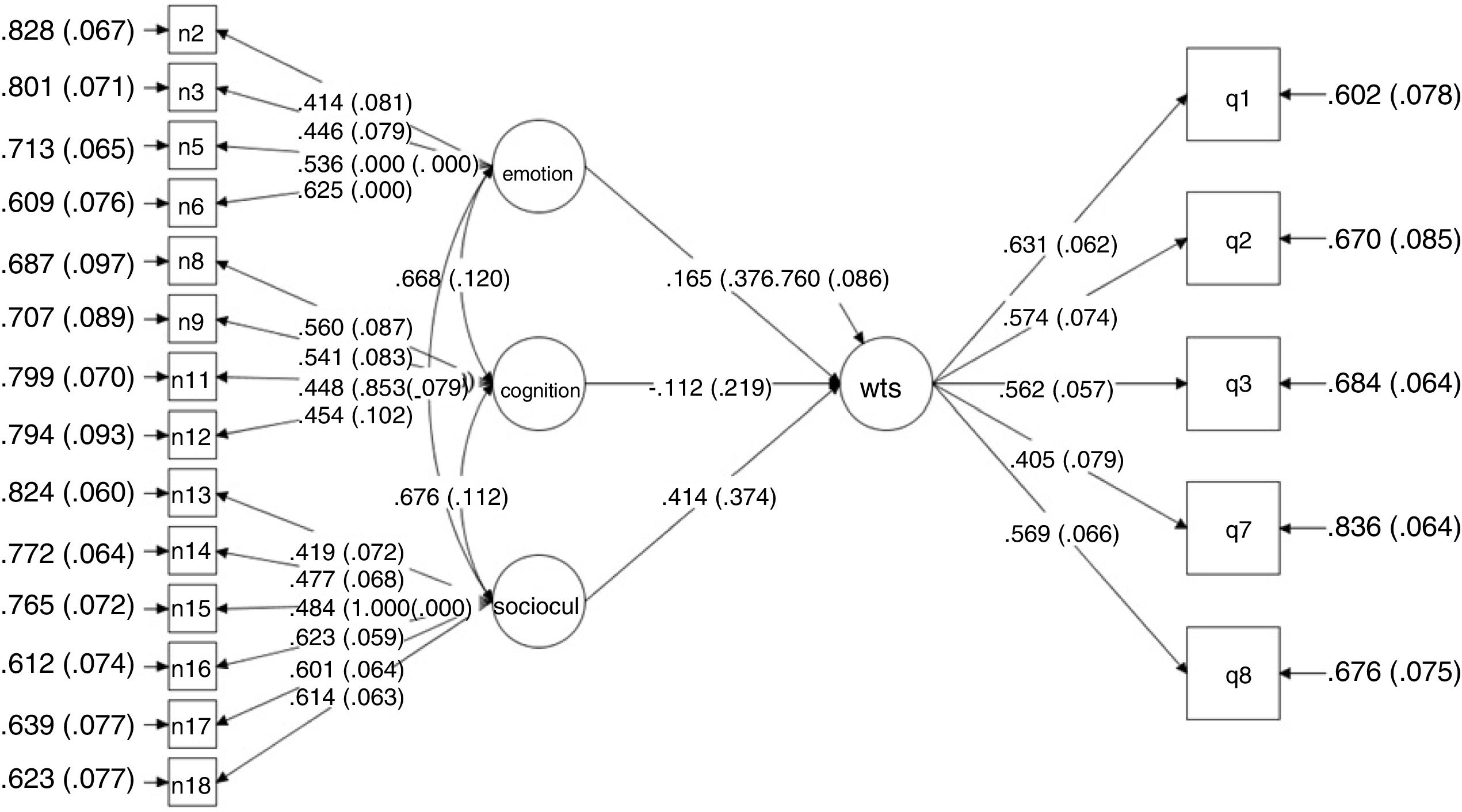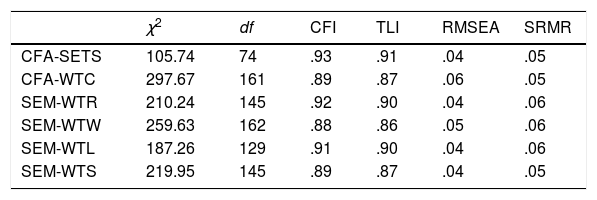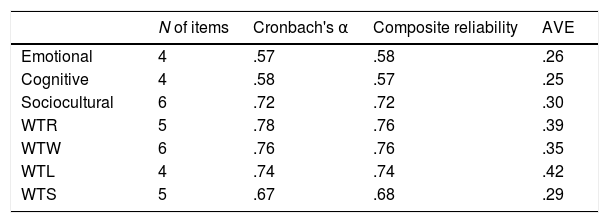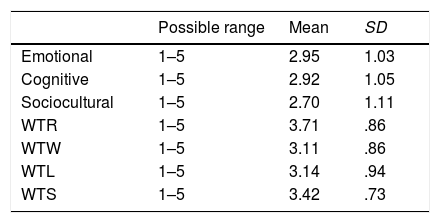Given that willingness to communicate (WTC) as an important individual difference (ID) variable plays a pivotal role in the second language acquisition (SLA) domain and the fact that an array of factors may affect it in English as a foreign language (EFL) classrooms, this study examines the relationship between the sensory emotioncy types and L2 WTC. To this end, 236 EFL learners ranging from intermediate to advanced proficiency levels were asked to take the willingness to communicate and the sensory emotioncy type scales. Afterwards, confirmatory factor analysis (CFA) and structural equation modeling (SEM) were utilized to analyze the data. The results demonstrate that all three types of sensory emotioncy namely, emotional, cognitive, and sociocultural have significantly positive correlations with the L2WTC subscales, including willingness to speak (WTS), willingness to read (WTR), willingness to write (WTW), and willingness to listen (WTL). The findings also reveal that the cognitive type is a significantly positive predictor of WTR and WTL. In the end, the results are discussed, and some suggestions and implications are presented to the benefits of rejuvenating SLA education.
Teniendo en cuenta que la voluntad de comunicarse (WTC) como una importante diferencia individual (ID) desempeña un papel fundamental en el dominio de adquisición de segundo idioma (SLA) y el hecho de que una serie de factores pueden afectarlo en inglés como lengua extranjera (EFL) en las aulas, este estudio examina la relación entre los tipos de emoción sensorial y L2 WTC. Con este fin, se pide a 236 estudiantes de EFL (inglés como lengua extranjera) que van desde niveles de competencia intermedios a avanzados que respondan a los cuestionarios WTC y SETS. Posteriormente, se ha utilizado el análisis factorial confirmatorio (CFA) y el modelo de ecuación estructural (SEM) para analizar los datos. Los resultados demuestran que los tres tipos de emoción sensorial, es decir, emocional, cognitivo y sociocultural, tienen correlaciones significativamente positivas con las subescalas L2WTC, incluida la voluntad de hablar (WTS), la voluntad de leer (WTR), la voluntad de escribir (WTW) y disposición a escuchar (WTL). Los hallazgos también revelan que el tipo cognitivo es un predictor significativamente positivo de WTR y WTL. Al final, se discuten los resultados y se presentan algunas sugerencias e implicaciones a los beneficios de rejuvenecer la educación de SLA.










